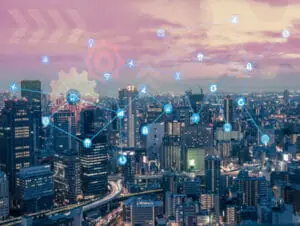
Hello everyone!
We finally made it… although the trials and tribulations of 2020 are still waning, 2021 has the potential to be a great year. With most people and companies fully adapting to work-from-home and the vaccine being slowly spread throughout the globe, this year will give our world a chance to focus more on the paramount issues that have been put on the back-burner, like climate change.
With the US rejoining the Paris Accords, there is now more room for teamwork and collaboration among global powers (and emitters), which will undoubtedly lead to greater innovation in the realm of sustainability. As America returns to the fight in a big way, the conversation surrounding climate change has quickly shifted. All across news outlets, there is chatter of how President Biden is directing billions of dollars to combat global warming, and how the Pentagon is now declaring climate change a national security threat. This is a precedence that will create a more climate-conscious union and its effects are already trickling throughout the country. As a result, the impetus of society’s shift to net-zero is stronger than ever. Not only is the new administration taking this issue more seriously than it has in the past but also is calling for governments and global institutions to come together and create real solutions. This push is unprecedented, and, with the exponential advent of technology, there are ample opportunities for groundbreaking ideas to pave the path to a brighter future.
Enter the Digital Carbon Warehouse (DCW)... The DCW was initiated by Lightworks last year. To remind the audience, the DCW is a block chain EMEA LEED platform that will give individuals and businesses an easy way to track their carbon output and link that to decisions to offset their emissions accordingly. Radical transparency delivered through track and trace smart systems will present pathways to climate-consciousness, achieve corporate carbon agendas, and generate robust local economies. Realized co-benefits to provide additional incentives is an important step to make the platform successful. It is crucial for people to understand not only the value proposition for the greater good but also how this brings value to them individually. The current hypothesized co-benefits related to circular economy are still high-level and the question is, how do we incentivize all demographics to be active users? Increased regulatory and market pressures for businesses to make this shift will likely make them early adopters. This is already being seen with organizations like Microsoft, which announced their purchase of 1.3 million carbon offsets as part of the tech giant’s mission to become carbon negative by 2030. The goal is to get our entire society on board in what is predicted to be a multi-billion-dollar marketplace, serving also as an amazing solution to carbon intensity reduction.

As a thought experiment, what could an actual working model look like? A flexible distributed ledger platform (similar to blockchain) would be required for proper tracking and tracing functions. Since a blockchain is designed to be immutable and the sequestration process is impermanent, there will be a need for innovation in the space in tangent with thorough compliance and contract policies. Essentially, a strict set of standard rules that are maintained in the marketplace through smart contracts and AI will be necessary. AI and machine learning functions could be programmed to ensure that each carbon credit purchased will actually represent the removal of one metric ton of carbon or other equivalent GHG. Once this is achieved, tax incentives from buying offsets would make them more attractive in the market. Eventually, this will all be supported through individualized software that will allow people to estimate the emission they are responsible for from any activity (driving, flying, purchasing), and offset this contribution with the push of a button.
So, where does ASU Lightworks come in? It begins with catalyzing experts and industry leaders from disparate sectors with the shared objective to transition to renewable energy and contribute to economy-wide decarbonization. For the DCW, the Lightworks team has fostered these relationships, contributing to a community of domain experts, industry professionals and corporates from sectors such as data analytics, smart intuitive systems, machine learning, bio/mechanical/software engineering, legal-policy, water, agriculture and economics. On top of this, as we continue to develop the business case and crowdsource different players that can support the tracking and tracing components, we become ever closer to making this a reality.
Imagine a world where individuals and businesses are constantly incentivized to make climate-conscious decisions with real impacts. These decisions will enhance all aspects of our lives from the air we breathe to the food we eat. This is the world we are looking to build. Yet, as implied in this article and in our last blog posts, we still have a lot to achieve. We face a looming challenge that also fortunately presents positive implications and opportunities… Ultimately, as the famous author and optimist, Ryan Holiday, likes to say, the obstacle is the way.